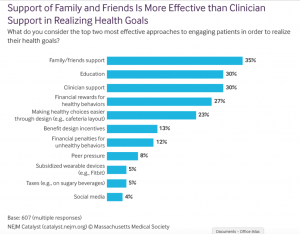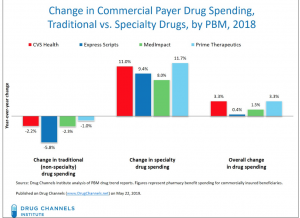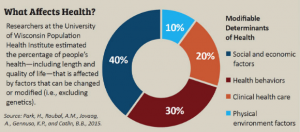In which I drop a “Nerd Bomb” into your email folder…
Here’s this week’s research-that-impacts-you I found compelling…
From WCRI, a report analyzing the relationship between prices for medical services and patient outcomes. More specifically, authors Olesya Fomenko and Bogdan Savych and ask the question “What happens to worker outcomes when prices increase or decrease?”
The authors used a comparison of workers’ comp medical prices for common office visits to group health, with the latter used as a proxy for adequate or benchmark compensation (my words, not the authors’.)
Key takeaways:
- Medical prices are “not strongly related to measures of recovery of physical health and functioning, speed and likelihood of return to work, or duration of temporary disability.”
- But…as all healthcare is local, there are some unexpected (at least to me) findings.
- in areas where WC pays less than group health, raising WC prices results in more care delivered to WC patients, increased temporary disability (TD), but no significant change in access to care – and no impact on outcomes
- where WC pays MORE than group, increasing WC prices results in more care delivered to WC patient, less concern about access – but NO meaningful impact on outcomes
Changing bad health behaviors
If you’re using financial incentives to change people’s health behaviors, you may be disappointed. Research published in NEJM indicates support from loved ones and clinical support are more effective.

Pharmacy costs
Lost in the mostly-incoherent squabbling about drug prices is this: Net prices – that is, what insurers/healthplans/employers/payers paid AFTER rebates – for “traditional” drugs DROPPED last year (specialty med prices increased marginally).
Dr Adam Fein’s analysis of PBM trend rates showed the overall increase across all PBMs was in the low single digits; individual PBM results varied somewhat.
 I’d encourage all to read Dr Fein’s post – and to subscribe to Drug Channels.
I’d encourage all to read Dr Fein’s post – and to subscribe to Drug Channels.
Speaking of drugs, the American Pain Society – the fine folks partially funded by opioid manufacturers – looks to be filing for bankruptcy.
Finally, how important is clinical care to a person’s overall health?

Your family income, environment, whether you take care of yourself – all these are WAAAAAY more important than the quality of care you get.
Which ties in pretty well to the research above about health behaviors.
What does this mean for you?
Get out and take a walk, and lift some weights too!
Note – this is me getting some exercise while on the boy’s annual mountain bike trip in Moab, Utah. Fortunately the “healthy behavior” of riding my bike a lot wasn’t outweighed by my inability to avoid crashing a few times…



